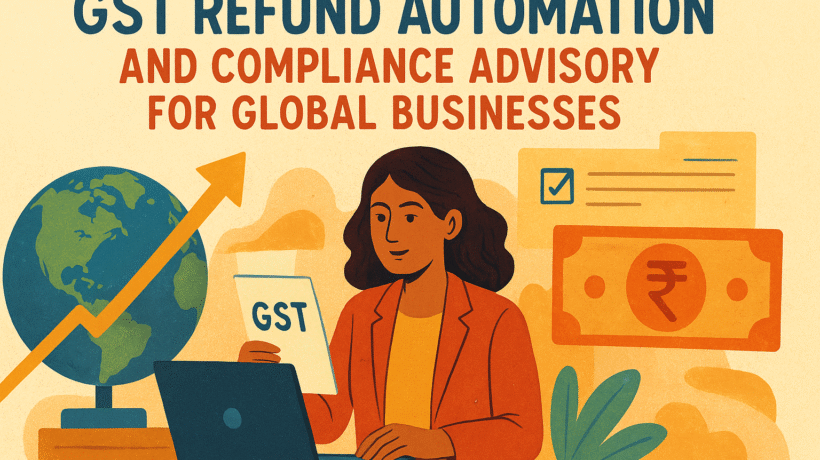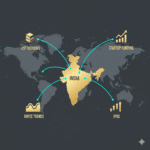GST Refund Automation and Compliance Advisory for Global Businesses
Introduction
India is stepping up its efforts to simplify GST processes for both domestic and global businesses. From September 22, 2025, the Central Board of Indirect Taxes and Customs (CBIC) will roll out automated provisional GST refunds, providing faster liquidity to exporters, foreign entities, and NRIs engaged in cross-border trade. Alongside this, a compliance advisory has been issued for foreign companies selling into India under the new GST structure.
Automated Provisional GST Refunds
Starting September 22, 2025, provisional GST refunds will be automatically processed.
This initiative will benefit exporters, NRIs, and global companies trading with or from India.
By reducing manual intervention, the system will minimize delays and improve transparency.
Why It Matters
For Exporters: Faster refunds mean improved cash flow and business continuity.
For NRIs: Investments and trade operations become smoother with reduced compliance hurdles.
For India: Enhances global investor confidence and strengthens India’s ease of doing business ranking.
Compliance Advisory for Foreign Companies
The CBIC has reminded foreign companies selling into India to update invoicing systems in line with the new GST structure effective September 22, 2025.
Companies that fail to adapt risk penalties, interest liabilities, and compliance disputes.
Key Compliance Steps for Global Entities
Update billing and invoicing systems to reflect revised GST rates.
Ensure that payment and invoice timelines comply with new slab rules.
Review contracts with Indian customers to avoid mismatched tax obligations.
Train accounting teams or service providers to handle the transition smoothly.
Broader Global Implications
Ease of Trade: Automated refunds reduce bottlenecks for businesses abroad dealing with India.
Risk Management: Clearer compliance rules help foreign entities avoid disputes.
Global Outreach: This reform signals India’s commitment to facilitating smoother international business.
Conclusion
The automation of provisional GST refunds marks a significant step toward simplifying tax processes for both Indian and foreign stakeholders. Coupled with the compliance advisory, global companies and NRIs must act quickly to adapt their invoicing and accounting systems by September 22, 2025. Together, these measures strengthen India’s position as a global trade hub and make cross-border business more efficient.
FAQ'S
Q1. What changes in GST refunds will take place from September 22, 2025?
The CBIC will automate provisional GST refunds, enabling faster and more transparent processing.
Q2. Who benefits from automated GST refunds?
Exporters, NRIs, and foreign companies engaged in trade with India.
Q3. What compliance steps should foreign companies selling into India take?
They should update invoicing systems, align with the new GST structure, and ensure accurate tax reporting.
Q4. What risks do global companies face if they don’t comply?
Non-compliance may result in penalties, interest, and disputes with tax authorities.
Q5. Why is India automating GST refunds?
To reduce delays, improve liquidity for businesses, and strengthen global investor confidence.
Q6. How does this impact NRIs engaged in trade or investment?
It simplifies compliance and ensures faster refund cycles, reducing administrative burden.





